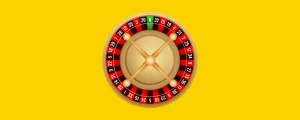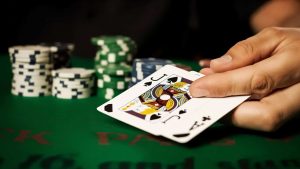
The click of the wheel. The gentle arc of the ivory ball. The dealer’s calm, “No more bets.” We all know the mechanics of roulette. But step into a live dealer casino online, and you’re signing up for something far richer than a simple game of chance. You’re entering a digital social hub, a micro-society with its own unspoken rules, shared triumphs, and fleeting connections.
Honestly, it’s the closest thing to a real casino floor without the travel. And the social dynamics at play are absolutely fascinating. Let’s dive in.
The Digital Felt: A Stage for Human Interaction
At first glance, it’s just you and a screen. But that’s an illusion. In reality, you’re sharing a virtual table with a dozen or so other players from around the world, all connected by a live video feed and a chat box. This is the town square of the live casino. It’s where the magic—and the sociology—happens.
The Cast of Characters You’ll Meet
Every table has its regulars and its personalities. After a few sessions, you start to recognize them. You know, the usual suspects.
- The Strategist: This player has a complex system, often betting on multiple corners and splits. They type things like “Red is due!” and share their logic with the table, whether we asked for it or not.
- The Superstitious One: They always bet on their lucky number 17. They blame a loss on the dealer’s “bad energy” or celebrate a win because a black cat crossed their path earlier. You can’t reason with them, and honestly, you wouldn’t want to.
- The Chatty Cathy: The social butterfly. They’re there as much for the conversation as the game. They’ll ask the dealer about their day, comment on the weather in Latvia, and remember that you had a job interview last week.
- The Silent Observer: They never type a word. They just place their bets, watch the wheel, and cash out. A mystery wrapped in an enigma… with a betting limit.
The Dealer: More Than a Croupier
The dealer is the sun around which this little social solar system orbits. A good dealer doesn’t just spin the wheel and pay out wins; they set the tone. They’re part-game-show-host, part-therapist.
They remember names. They congratulate big wins with genuine enthusiasm. They diffuse tension after a bad beat with a well-timed joke. When a player is on a losing streak, a simple “Better luck on the next spin, David” can make all the difference. They are the ultimate facilitators of the live casino social experience.
The Unspoken Rules of the Live Roulette Chat
Just like any social space, the chat box has its own etiquette. It’s not written down anywhere, but you feel it. Break these rules, and you’ll feel the digital cold shoulder.
| Do: | Don’t: |
| Greet the dealer and other players. | Blame the dealer for your losses. |
| Congratulate others on big wins. | Spam the chat with nonsense or demands. |
| Be patient—dealers are managing multiple tasks. | Give unsolicited (and usually bad) betting advice. |
| Keep the conversation generally light and positive. | Share personal or financial information. Ever. |
That last one is crucial. The chat is a public space. It’s amazing how quickly a shared frustration over a number that “just won’t hit” can create a sense of camaraderie. But it’s a thin line between camaraderie and toxicity. The best tables are those where the vibe is supportive, almost like a group of strangers briefly united by the spin of a wheel.
Shared Rituals and Collective Energy
This is where it gets interesting. Humans are ritualistic creatures, and the roulette table is no different. There’s a collective breath-holding as the ball dances. A synchronized groan when it lands on zero. An explosion of typed “GGs” and “WOWs” when someone hits a straight-up bet.
This shared experience creates a kind of temporary tribalism. You’re no longer just individuals; you’re participants in a shared event. You feel a flicker of genuine happiness for the player in Italy who just won big on your screen. Their win becomes a small victory for the whole table, a proof that it’s possible. It’s a powerful psychological draw, this sense of belonging, however brief.
The Illusion of Control in a Social Context
Roulette is a game of pure probability. We all know this, intellectually. But in a social setting, that logic often flies out the window. Hearing The Strategist explain their “foolproof” method or The Superstitious One insist that “black is hot” can subtly influence your own bets.
You might find yourself chasing a number because everyone else is. Or avoiding a section of the wheel because someone declared it “cold.” This social proof is a potent force. It gives us an illusion of control, a sense that we’re not just throwing chips into the void, but are part of a collective intelligence. A flawed one, sure, but a collective one nonetheless.
Why It All Matters: The Human Connection
In an age of algorithms and solo gaming, the rise of live dealer games is a testament to our innate need for human connection. We don’t just want to beat the game; we want to share the experience. The laughter, the tension, the small talk—it makes the digital feel human.
It transforms a transactional activity into a recreational one. You’re not just depositing and withdrawing; you’re spending an evening in a unique social space. The money is just the token that lets you play. The real currency is the interaction.
So next time you join a live roulette table, take a moment to look beyond your own betting circle. Watch the chat. Listen to the dealer. Feel the rhythm of the table. You’re not just placing a bet on red or black. You’re participating in a tiny, temporary, and wonderfully human community, all connected by the spin of a wheel and the hope for a little bit of luck.






